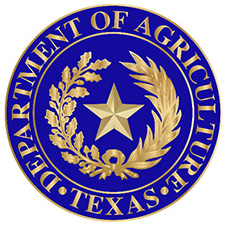California paraquat use concentrated in poor, Latino communities
Between 2017 and 2021, 5.3 million pounds of the herbicide paraquat were sprayed on California fields, with 66 percent of it in five Central Valley counties whose residents are predominantly poor and Latino, according to a new Environmental Working Group analysis.
AFR LATEST
I
A toxic grass problem
America’s “fescue belt,” named for an exotic grass called tall fescue, dominates the pastureland from Missouri and Arkansas in the west to the coast of the Carolinas in the east. Within that swath, a quarter of the nation’s cows — more than 15 million in all — graze fields that stay green through the winter while the rest of the region’s grasses turn brown and go dormant. But the fescue these cows are eating is toxic. The animals lose hooves. Parts of their tails and the tips of their ears slough off. For most of the year, they spend any moderately warm day standing in ponds and creeks trying to reduce fevers. They breathe heavily, fail to put on weight, and produce less milk. Some fail to conceive, and some of the calves they do conceive die. The disorder, fescue toxicosis, costs the livestock industry up to $2 billion a year in lost production.
TODAY’S QUICK HITS
Bridge collapse shuts port: The Port of Baltimore, a significant shipping point for U.S. sugar imports, suspended traffic Tuesday after a container ship slammed into and collapsed the Francis Scott Key Bridge, shutting the main channel leading into the Chesapeake Bay. (Agri-Pulse)
PFAS progress: A new partnership with Michigan State University and a contaminated Michigan farm aims to study PFAS movement through soil and livestock, hoping to find viable remediation strategies. (EHN)
Pushback on deforestation law: Some 20 members of the European Union asked Brussels to scale back and possibly suspend the bloc’s anti-deforestation law on Tuesday, saying the policy would harm farmers. (Reuters)
Cox enters the greenhouse game: Cox Enterprises launched Cox Farms on Tuesday, an indoor-farming business that initially includes Mucci Farms and BrightFarms, making it one of the largest greenhouse operators in North America. (Cox)
Climate tradeoffs: California farmers could save massive amounts of water if they planted less thirsty — but also less lucrative — crops such as grains and hay instead of almonds and alfalfa, according to new research by scientists who used remote sensing and artificial intelligence. (CalMatters)











